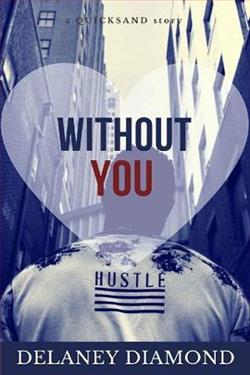Page 91 of Diamond
She hands one of the new blades to me and tears hers in half to start tying it into knots again.
"They are excluded and raised by other males to become protectors as well. If they are battle-hardened enough when they grow older, they also get to be donors."
My hand reaches up to the tip of my left ear. The one I could pierce now, if I wanted.
I can see her discomfort plainly on her face, but I understand that, from what she has said of her people, all this must seem odd.
Nasrin bites on her bottom lip as she empties her hands and wipes them against her front. "It sounds like such a circuitous life," she says.
I mimic her and nod in agreement. "It might be, but I have never questioned it before. It creates an easy justice system. If a man lies with a woman before she is of age and she gets pregnant, he has to stand up for it and claim to be her donor. She is also questioned, and if she says it was not consensual, he is sentenced to death."
"What about the children?"
"I don't know," I say. "I never tried to find out. We knew what our role was, and we did it earnestly. Everything else was a distraction."
Her puzzled expression shifts into one of compassion. She looks at me the way she looks at her pet argila and I'm not sure how I feel about it. Except that there's hope in my chest and I like how it feels.
46
Rin
It all makes sense to me now.
All of our endless quarrels about cloisters, donors, and even the meaning of life, seem to have settled through a few uninterrupted conversations. Conversations not cut short by hunters trying to kill us. "I am really glad you asked me the questions," I say to him. He turns to me with a grin, one that no longer unsettles me. His grin, once terrifying, now feels reassuring. I take it as a good thing that he smiles more often, though if we meet other humans, I may have to explain to them he is not trying to bite their heads off.
"I am as well," he agrees.
I sigh deeply, letting the weight of my thoughts settle before I speak. "The general idea of a cloister is good, but I don't have a pleasant history with being confined. It has never been for my benefit or the benefit of the women I knew."
The words feel inadequate, a mere shadow of the truth I want to convey. I can't properly express the despair of being trapped my entire life, the suffocating fear of oppression. But I hope he sees the meaning behind my words and reluctance.
Kuret makes the clicking sound. "You mentioned it to me—how your friends were taken and hurt."
The moment the words leave his mouth, a cold sinking sensation coils in my stomach. All the levity I had been feeling over the course of our revelatory conversation is instantly dispelled. He has been so open with me, sharing his truths without hesitation. Perhaps it's time for me to do the same.
I swallow thickly as the memories flood my mind again—memories that I have been trying to suppress since the moment it happened. "I didn't tell you everything. It was not just my friends who were hurt that day. I kept protesting after that."
I draw in another breath, forcing myself to steady my trembling voice. "We went out that day with our boards, walking the streets and yelling what we wanted and when we wanted it; it was even covered on the news and we thought we were breaking through. On the third day of the protests, we were told that someone who could influence our decision wanted to see us."
Kuret inhales sharply, his voice grim. "They deceived you."
I nod my head and laugh bitterly. "You are right. It was an ambush. They beat us mercilessly. I nearly died. Only a few of us managed to escape."
The words feel like stones leaving my mouth, heavy and unrelenting. The memory is as fresh in my mind as if it had happened yesterday. The cruelty involved was unfathomable.
"I still wake up screaming about it sometimes."
He sighs sadly and places a hand on my arm. I pull it lower so that we're holding hands and he stares at our intertwined hands with an interested warmth, albeit with some confusion.
"Did you convince them to give you what you wanted?"
His naivety is endearing, and it nearly makes me crack a smile.
"Not at all. We were perceived as terrorists, accused of threatening the peace of our land. Every single one of us who participated was punished. Some people were publicly flogged butbabawas able to make sure I was not. Instead, I got banned from doing my job—or any other job for that matter—and my family was told to keep me under control. That meant I didn't leave the house."
The same fury that consumed me on that day burns in my chest now as I think of the other women who stood beside me. "All we wanted was the freedom to be taught and to keep the girls in schools. But even that was too much for them. They wanted to make examples of us."
I swallow hard, the memory of those oppressive days forcing its way to the surface. "I went back later. To protest, I mean. After mybabadied and I felt like there wasn't much to live for anyway. He was the only one stopping me from being married off and shut away for good. So I snuck out, and they threatened meagain. Nothing changed, and I think it's the reason my brother and his wife betrayed me."















